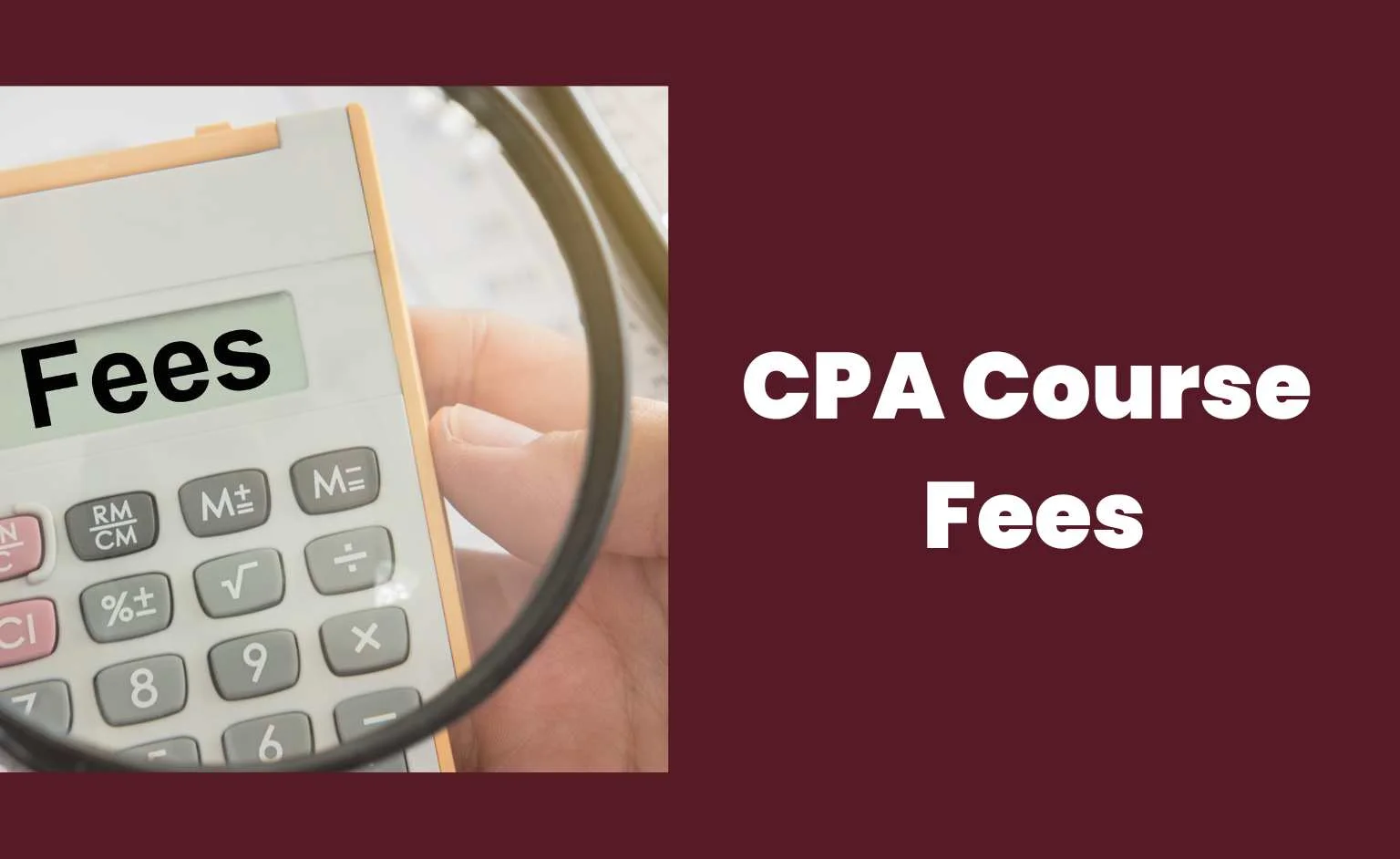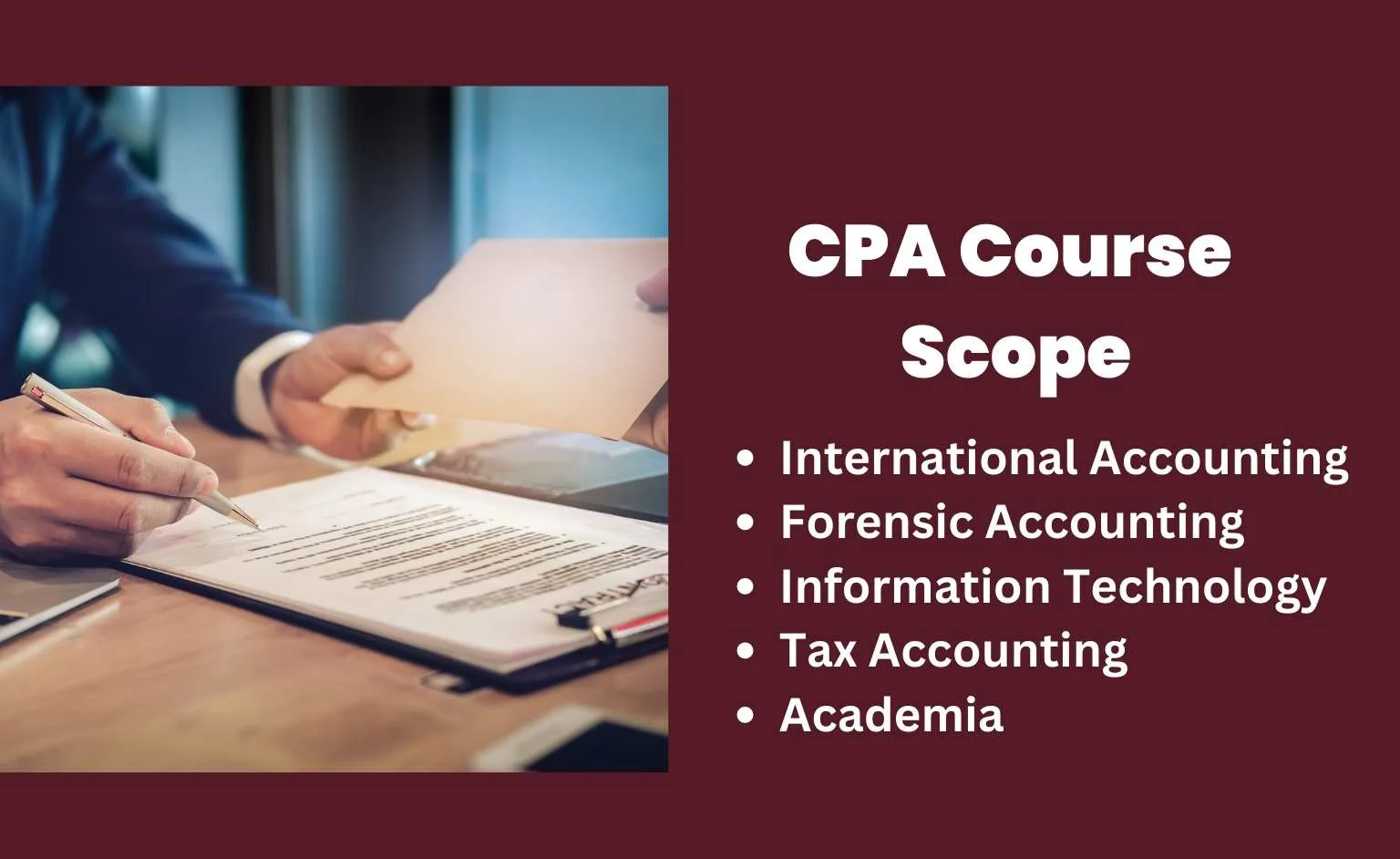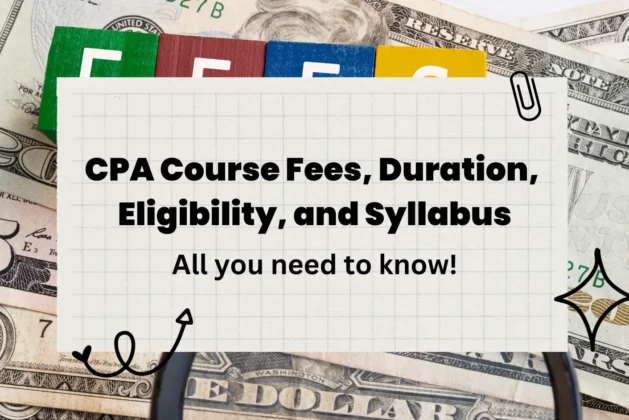Table of Contents
ToggleIntroduction
A CPA Course is a fantastic approach to improving your accounting abilities and advancing your career. This course delivers vital knowledge and skills whether you are just starting in the sector or want to improve your professional credentials. A CPA Course will teach you key skills such as financial reporting, auditing, taxation, ethics, and governance. These abilities will not only help you pass the test but will also prepare you for real-world situations. Overall, it’s a great investment that will pay off both professionally and financially in the long run.
What is a CPA Course?
The saying goes, “Every CPA is an accountant, but not every accountant is a CPA.”
A CPA, full-form Certified Public Accountant, is recognized as a financial advisor in several English-speaking nations. Public accounting and industrial accounting are the two most well-known CPA careers.
Both are accountable for assisting the organization in meeting its financial goals by performing a variety of duties and responsibilities such as auditing and review, financial planning and business valuation, tax preparation, company management, litigation services, and forensic accounting services.
A CPA course that involves schooling, a CPA test, and experience is therefore an option for those with a talent for accounting and finance.
Also, read: CA Course, CS Course
What will you Learn in a CPA Course?

A CPA course is intended to give students the information, abilities, and competence needed to become a certified public accountant. Accounting concepts, company legislation, auditing processes, and taxes rules are among the subjects covered in the course.
- Financial accounting generates financial statements such as balance sheets, income statements, and cash flow statements. Students will also learn how to analyze financial data to make sound decisions.
- Managerial Accounting focuses on providing information for internal use within an organization. Topics include budgeting, cost analysis, and forecasting.
- Audit teaches students how to assess risk and develop effective audit plans for organizations. Ethics are also emphasized throughout this section.
- Taxation is another integral part of the program where students learn about tax laws at both state and federal levels. They gain insight into tax planning strategies while understanding compliance requirements.
Taking a CPA Course provides learners with comprehensive knowledge about various aspects related to finance which could help them excel in their careers as accountants or Auditors.
CPA Course Benefits
Taking a CPA course can have many benefits for your career, personal growth, and professional development.
- It enhances your knowledge and skills in Accounting and Finance. You will learn everything from financial reporting to tax preparation, and you’ll gain practical experience working with real-world scenarios.
- Having a CPA certification on your resume can help distinguish you from other job applicants. It’s not only an impressive credential but also indicates to potential employers that you are committed to continuing education and professional development.
- Also, being a certified public accountant provides countless opportunities for career advancement with higher salaries than non-certified counterparts.
- Pursuing a CPA course gives professionals the chance to specialize in specific areas such as auditing or taxation which allows them to become experts in those areas over time.
CPA Course Fees

CPA course fees are divided into various segments including Application Fee, Examination Fee, Registration Fee, Ethics Fee, CPA Licensing Fee
The Fee structure for the CPA exam is given below:
(Note: All the fees paid at different points are not subjective and vary according to the state)
|
Application fees |
$50-$200 (approx. Rs. 3,600 to Rs. 14,500) (Further depending on the state) |
|
Examination Fee |
$193 (approx Rs. 14,100) |
|
Ethics Fees |
$150-200 ( approx Rs. 10,900 to Rs. 14,500) |
|
Licensing Fees |
$50 -500 |
CPA Registration Fees:
- If you appear for one section at a time- $63 (approx. Rs. 4,600)
- If you appear for two sections at a time- $81 (approx. Rs. 5,900)
- Three sections at a time- $99 (approx. Rs. 7,200)
- Four sections at a time- $177 (approx. Rs. 12,900)
CPA vs CA Course
|
Basis |
CA |
CPA |
|
Full form |
Chartered Accountant |
Certified Public Accountant |
|
Conducting Authority |
The Institute of Chartered Accountants of India (ICAI) |
American Institute of Certified Public Accountants (AICPA) |
|
Recognition |
Indian Degree |
Internationally recognized |
|
Topics included |
Generally Accepted Accounting Principles (GAAP) only |
|
|
Minimum time |
4-5 Years |
7 months-1 Year |
|
Mode of Examination |
Offline |
Online |
CPA Course Scope
If you want to take your accounting skills and enthusiasm to the next level, enrolling in a CPA program is the finest decision you can make. It opens a lot of career opportunities for you.
Aside from financial planning, counseling, and auditing, the following are some of the most sought-after employment categories for CPAs.

International Accounting
Following successful completion of the CPA course and test, the accounting professional will be responsible for a variety of international commercial transactions, overseas trade agreements, and worldwide economic and financial concerns.
Forensic Accounting
CPAs engage with organizations and utilize their specialist knowledge in Accounting to present themselves as an expert in court in different economic and monetary criminal situations such as bribery, money laundering, and fraud.
Information Technology
With information technology permeating every element of life, trained accounting experts can work as Information Systems Auditors and Software Revenue Managers not just in the private or corporate sectors, but also in the government sector.
Tax Accounting
A CPA course is the ideal approach to gaining high-quality knowledge on this topic of taxes, given the high need for taxation professionals in both the public and private sectors of the economy. CPA experts can operate as Tax specialists, International Tax Managers, or Sales Tax specialists in a variety of organizations across the economy.
Academia
Academia is the finest job option for those who want to share their expertise with others after completing the CPA degree. The CPA can serve as a full-time or part-time faculty member at a variety of educational institutions, teaching commercial subjects such as Accounting and Finance, Taxation, Business Ethics, Business Application, and Audit, among others.
CPA Salary
An entry-level CPA with less than a year of experience can earn between 6 and 8 lakhs. Whereas someone with 1-4 years of experience gets between 8 and 12 lakhs.
Check out ACCA Salary
Conclusion
In recent years, the CPA profession has undergone tremendous growth as more and more firms seek out CPAs for financial guidance. A CPA may provide a wealth of knowledge and skills that are beneficial when starting a new business or seeking for a new job. Enrolling in a CPA course would be the best gift you can give to your career.
Frequently Asked Questions (FAQs)
While both CPAs and accountants deal with financial matters, there are key differences. A certified public accountant (CPA) has passed specific exams and met certain educational requirements to earn their certification, while anyone can call themselves an accountant regardless of education or qualifications.
Yes, several colleges provide online courses for students interested in becoming CPAs. However, you must confirm that the program you select complies with state licensing standards.
The duration of the program varies depending on whether you attend full-time or part-time. In general, completing a CPA course might take anything from six months to two years.
No prior accounting experience is required for most programs; however, some may have prerequisites such as specific coursework in business or accounting.
This is ultimately determined by your professional and personal ambitions. Becoming a certified public accountant may lead to greater pay and more work prospects in a variety of areas, including finance, government, and non-profit organizations.



